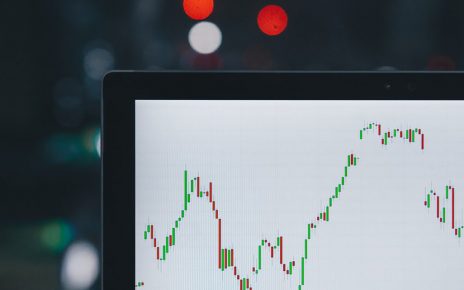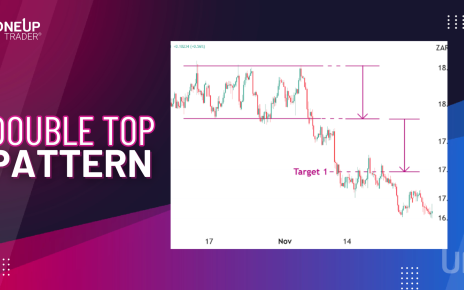There are two primary schools of thought when it comes to trading – technical and fundamental trading. While technical trading focuses on analyzing price movements and predicting future price changes using historical data, fundamental trading focuses on using economic data and financial parameters to find new trading opportunities.
Traders choose to direct their career and education towards one of these two trading methods.
While both methods are equally important in trading, this article will outline the importance of incorporating fundamental trading techniques.
What is fundamental trading?

Before we jump straight into the importance of fundamental trading, first, we must go back to the basics.
So, what is fundamental trading exactly?
Financial trading is popular amongst many investors, and there are numerous trading methods traders can choose. Scalping, swing trading, momentum trading, technical trading, etc., are some of the essential trading methods popular among traders worldwide.
Therefore, fundamental trading is only one of these many trading methods. Fundamental traders, often referred to as fundamentalists, analyze qualitative data to create trading strategies and use it to make informed trading decisions.
When it comes to fundamental trading, the trader’s success largely depends on their ability to analyze and use various economic data. They need to pay attention to alterations in numerous economic indicators, including employment reports, interest rates, inflation rates, GDP, and many others.
Fundamental analysis measures the intrinsic value of any financial instrument. From the general economic conditions to the financial strengths, fundamental traders have to analyze it all. In simple words, assets, earnings, expenses, and liabilities linked to a financial instrument (e.g., Stock) all have to be carefully examined by fundamental traders.
By using data gathered from these economic indicators, fundamental traders can research and forecast future market trends and determine how a particular financial instrument reacts to the data analyzed.
Key economic factors in fundamental trading

As previously mentioned, fundamental trading is primarily based on economic factors and is used to forecast future price fluctuations of a financial instrument. Although numerous factors need to be considered when doing fundamental analysis, here are some of the important economic indicators that can significantly influence price changes of a financial instrument:
1. Non-Farm Pay Roll (NFP)
Non-farm payroll, or simply NFP, is one of the crucial economic indicators and is directly related to the number of employment created in the USA. It measures the number of jobs created during the previous month by construction, goods, and manufacturing companies in the USA. The report does not include private employees, non-profit firms employees, and farmworkers, and it’s released every first Friday of the month together with other economic data such as Unemployment Rate, Participation Rate, and Average Hourly Earnings.
The Bureau of Labor Statistics releases this economic news event, and it’s a major indicator of the current outlook of the US economy to an extent. Fundamental traders need to be keenly aware of the NFP numbers to make better trading decisions since it affects almost all financial markets.
A higher NFP data is an indication that the economy is expanding and the rate of economic growth is increasing and vice versa. This conclusion helps fundamental traders identify key trends and market directions related to their trading.
2. Inflation rates
Inflation is the constant increase in the price of goods and services in a country. High inflation could negatively impact the economy overall and reduce the purchasing power of a country’s currency. Consequently, high inflation could generally affect other economic indicators like interest rates and GDP since the central bank may attempt to control the prices of goods and services by increasing interest rates. In an economy experiencing good economic growth, there will likely be a period of high inflation.
On the flip side, if inflation levels are consistently declining, that may not be a good indicator of a strong economy. It will mean that consumer spending has reduced due to factors such as low retail sales and high employment rates.
3. Interest rates
Interest rate is another critical macroeconomic indicator for fundamental traders as they tell the state of the country’s economic growth. Central banks for respective countries decide to either lower or increase their interest rates based on the current state of the economy. For example, suppose a country is experiencing high inflation rates, and consumers are spending more. In that case, analysts would expect that the central bank will increase interest rates to prevent the economy from growing too rapidly. Fundamental traders use this as a confirmation for growth. On the other hand, an increase in interest rates discourages consumer spending as the cost of borrowing also increases.
If a country’s economic growth rate is slow, fundamentalists expect central banks to intervene to decrease interest rates and encourage consumer spending. Fundamental traders will interpret lower interest rates to indicate that the economy is not doing well and will make informed trading decisions accordingly. The macro effect is that a lower interest rate will increase spending since the cost of borrowing will go down, which will eventually lead to better economic growth.
Central banks’ interest rate decisions significantly impact the economic behavior of banks, businesses, and consumers, and fundamental traders analyze this data to make optimal trading decisions.
4. Gross Domestic Product (GDP)
Gross Domestic Product (GDP) is an essential economic indicator that seeks to calculate the value of all goods and services of a country and is primarily used to determine and predict economic growth. GDP is an essential economic measure for fundamental traders as it shows whether or not a country’s production and economic development are good.
If a country is experiencing consistent GDP positive numbers for its GDP rate, that is a good indicator of a stable economy. However, suppose a country has negative or lower GDP numbers. In that case, that paints a gloomy picture and could mean that the economy may be heading for a recession, especially if the GDP rate decreases consecutively within six months.
5. Retail sales
Retail sales are crucial economic data that fundamental traders constantly monitor since consumer spending accounts for a greater part of economic activity. The Retail Sales numbers track all the finished goods and services sales by retail consumers and larger corporations.
A higher retail sales data shows that the economy is doing well and that consumers are confident about the current economic conditions. This may, in turn, boost consumer spending and lead to a higher GDP in general.
However, the opposite is true; if consumers are not sure of the economic situation, they will cut down spending and cause lower retail sales, which will not be good for economic growth.
Retails sales data released each month by analysts can positively or negatively impact the prices of financial products, so fundamental traders keenly monitor this economic data to make optimal trading decisions.
Approach to fundamental analysis

Fundamental trading is impacted by micro and macro-economic data such as employment statistics, GDP growth rates, interest rates, and geopolitical events. We will consider two main viable approaches to fundamental trading and analysis.
1. Top-down analysis
The top-down fundamental analysis starts by analyzing macroeconomic factors in the broadest sense. Data that is analyzed include Interest rates, GDP, employment rates, etc. Then, the analysis is narrowed down and refined using micro factors, such as specific sectors or company reports. An analysis is done until it reaches a point where the trader can potentially profit based on the data available to him and the specific market analyzed.
2. Trade and interest rates
Trade and interest rates are among the crucial factors driving the country’s economy, so it’s vital to maintain the balance of these two factors.
If a country is in a trade surplus, there is a high demand for its products and services. This easily translates to an increased demand for its currency, which drives its value and boosts economic activity.
On the other hand, low trade demand and interest rates decrease the country’s currency value and slow down economic growth.
The importance of fundamental trading
Let’s go back to the ultimate question. Why is it essential to implement fundamental trading?
Understanding and incorporating fundamentals in trading are crucial because it helps a trader look at numerous factors that can affect the price of a particular financial instrument. Each financial market will have its relevant fundamentals that may affect the price of an instrument.
Fundamental factors tend to affect market trends for the long term. So regardless of your trading style, it is essential to pay close attention to fundamentals in the financial markets. If ignored, a trader could be trading blindly without knowing the key factors affecting the changes in a financial product’s price, which could lead to significant losses.
A fundamental trader must research and evaluate all the potential factors that might positively or negatively affect the current price of a financial product. This detailed analysis allows him to make better trading decisions throughout their careers.
Final thoughts
Fundamental trading is one of the major techniques in any financial market. The importance of fundamental trading cannot be over-emphasized, as it helps traders know and understand the real factors behind any significant market trend.
When used together with technical analysis, a trader can see the bigger picture concerning market behavior and price direction. It can prove to be a powerful tool in our trading arsenal that can significantly improve your trading performance and lead to a successful trading career.





